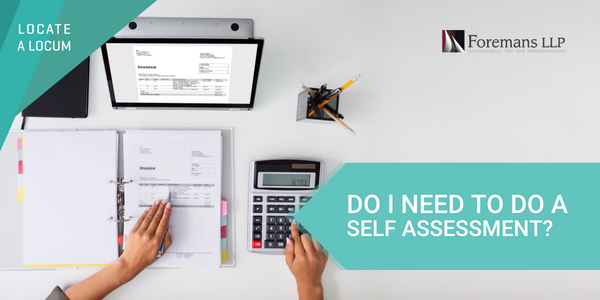More than 12 million people are expected to file a personal tax return within the United Kingdom by 31 January 2023. Last year only 10.2 million managed to file their 2020/2021 return by the online filing deadline. Late filing and payment of tax due can result in financial penalties and interest being payable to HM Revenue and Customs (HMRC).
Are you one of the individuals who needs to file but are either unaware of your responsibility or don’t know where to start? Firstly do not worry! You are not alone as the late and non-filing statistics show. Secondly you need to determine if you need to complete a return and then act accordingly.
You should be considering completing a personal tax return if any of the following apply to you.
Remember you may have more than one reason to need to file.
1.If you are Self Employed and your income is more than £1,000 before deducting expenses
If your self employment gross income (income received before deducting any expenses) is less than £1,000 in a tax year you may not need to complete a tax return for the tax year in question. If your gross income is more than £1,000 you may be entitled to claim a trading allowance of £1,000 instead of expenses.
2.If you have received rental income
If you are a landlord renting property whether residential or commercial, UK or foreign it should be declared as taxable income in the year received.
3. If you are a Company Director
As you control your income and reimbursed expenses from your company you may need to complete a tax return. You will need to disclose your employment income including any benefits in kind.
4. If you are a shareholder receiving dividend income
If you received more than £2,000 in dividends between 06 April 2021 and 05 April 2022 you should include on your tax return. The £2,000 limit is reducing to £1,000 for 2023/2024.
5. If you made a Capital Gain on selling assets;
If you dispose of any assets other that your principal private residence you will need to declare any gain or loss on a tax return. Please note if you sell a property in a tax year you need to report and pay any gain/loss and pay any tax to HMRC within 60 days of contract exchange.
6. If you received income over £50,000 or your partner’s income is more than £50,000 and one of you is claiming Child Benefit;
If you or your partner are claiming Child Benefit and one of you has a gross income of over £50,000 you may need to repay some of the Child Benefit. The amount will be assessed on the taxpayer receiving in excess of £50,000 regardless of who actually receives the money. An income above £60,000 means that you will need to repay all of the Child Benefit received.
7. If you are UK resident and receive foreign income;
You will need to declare the foreign income and any tax paid in the foreign country so that the income can be assessed to UK income tax. If you have already paid foreign tax this may, in some circumstances, be offset against the UK tax.
8. If you are non-UK resident and receive UK income;
Any UK income may be subject to UK tax regardless of whether you are UK resident for tax purposes.
9. If you received gross income greater than £100,000 in a tax year;
A taxpayer with more than £100,000 taxable income will lose £1 of their personal allowance for every £2 in excess of £100,000. Even if you are an employee paying tax by deduction by your employer through PAYE you will need to complete a tax return.
10. If you received gross income more than £50,000 and you make personal pension contributions from taxed income;
If you are paying higher rate tax at 40% you may be entitled to claim some tax relief for any personal pension contributions that you make.
11. If you have untaxed income from any source;
If you are unsure whether you should file a self assessment tax return you should seek advice from an accountant who should be able to advise you correctly. Foremans are more than happy to review your circumstances and advise on the need to file.
Remember do not wait for HMRC to ask you to file as it is your responsibility to complete and file on time.
Once you have determined that you need to complete a return you need to ensure that you file on time. The return will need to be filed either on paper by 31 October following the end of the tax year or online by 31 January following the end of the tax year.
If you are considering completing the 2021/2022 tax return we have already passed the paper online filing deadline of 31 October 2022. Any 2021/2022 returns now being filed will need to be filed online by 31 January 2023 in order to avoid a late filing penalty. The initial late filing penalty is £100 and will be applied even if you file at 1 minute past midnight on 01 February 2023.
Next Steps
Assess whether any of the above circumstances apply to you. Get some advice and start collating your information. Register to file your tax return as soon as possible. Please do not hesitate to contact us at Foremans if you have any queries regarding self assessment tax returns. Please send your query to us at contactus@foremansllp.com or call 01244 625 500 and one of our friendly team will be happy to help. Whilst all due care and attention has been taken in the preparation of these notes no liability can be accepted for any omission or item contained therein.
Foremans LLP January 2023
Coming Soon 2024
Get early access to LALPro for improved locum support. Streamlined solutions for invoicing, payments, financial forecasting & more!

